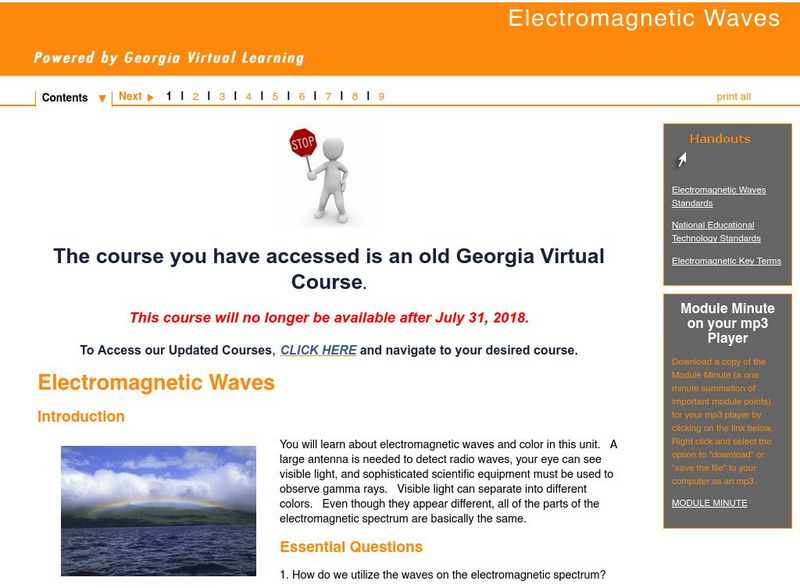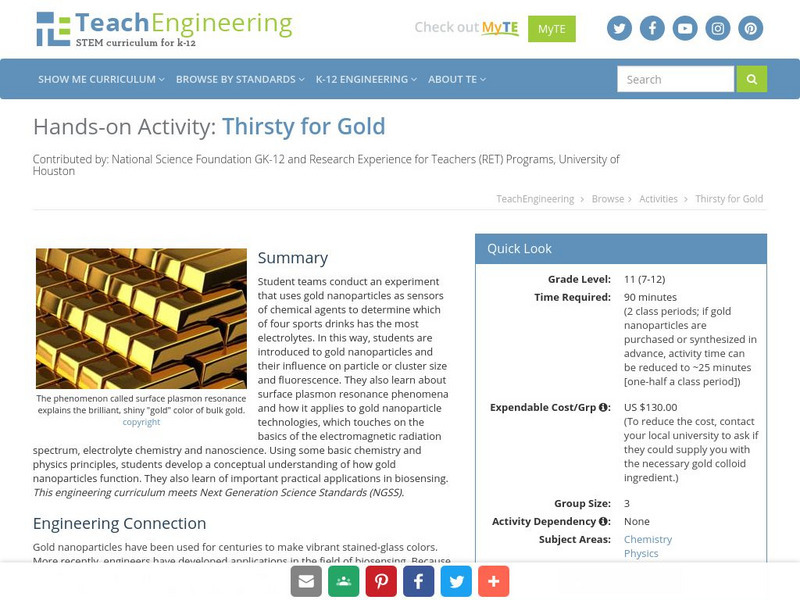Other
Escolar.com: La Luz
A brief summary and illustrations of light and how the lights rays are reflected and bent.
Curated OER
Science Kids: Science Images: Visible Spectrum
This picture shows the colors in the visible spectrum. Human's eyes can see light in this range but we are unable to see other light such as infra-red and UV without the aid of scientific equipment.
PBS
Newton's Apple: Cancer Causes
In this lesson plan site from Newton's Apple, a production of KTCA Twin Cities Public Television in cooperation with the National Science Teachers Association, the causes of cancer are discussed. Several cancer causing agents are also...
NASA
Viewing the Violent Universe: What Are Gamma Rays?
The universe produces a broad range of light, only a fraction of which is visible to our eyes. Gamma rays are nonvisible light, which also includes x-rays, ultraviolet light, infrared radiation, and radio waves.
Georgia Department of Education
Ga Virtual Learning: Electromagnetic Waves
Through informational text, interactive activities, practice problems, and virtual simulations, students explore the properties of electromagnetic waves.
Curated OER
Science Kids: Science Images: Ozone Molecule
This diagram shows a 3D computer generated image of the triatomic molecule known as ozone. Ozone is an allotrope that contains three oxygen atoms. The ozone layer found in the upper atmosphere helps protect the Earth against potentially...
Curated OER
Science Kids: Science Images: Polarized Glasses
These polarized glasses offer high protection from UV rays produced by the sun. The sunglasses sit facing forward on a white table.
NASA
Nasa: The Ups and Downs of Ozone
Scientists look at the efforts to decrease ozone depletion in this news story from the year 2000. Maps and photos. Links to other ozone data-gathering sites. (June 26, 2000)
TeachEngineering
Teach Engineering: Thirsty for Gold
Student teams conduct an experiment that uses gold nanoparticles as sensors of chemical agents to determine which of four sports drinks has the most electrolytes. In this way, students are introduced to gold nanoparticles and their...
NASA
Nasa: Imagine the Universe: Welcome to the World of Multiwavelength Astronomy!
This Imagine the Universe site provides an introduction into the multiwavelength universe and astronomy. Site provides graphics, links to a quiz, facts on this topic as well as teacher resources.






